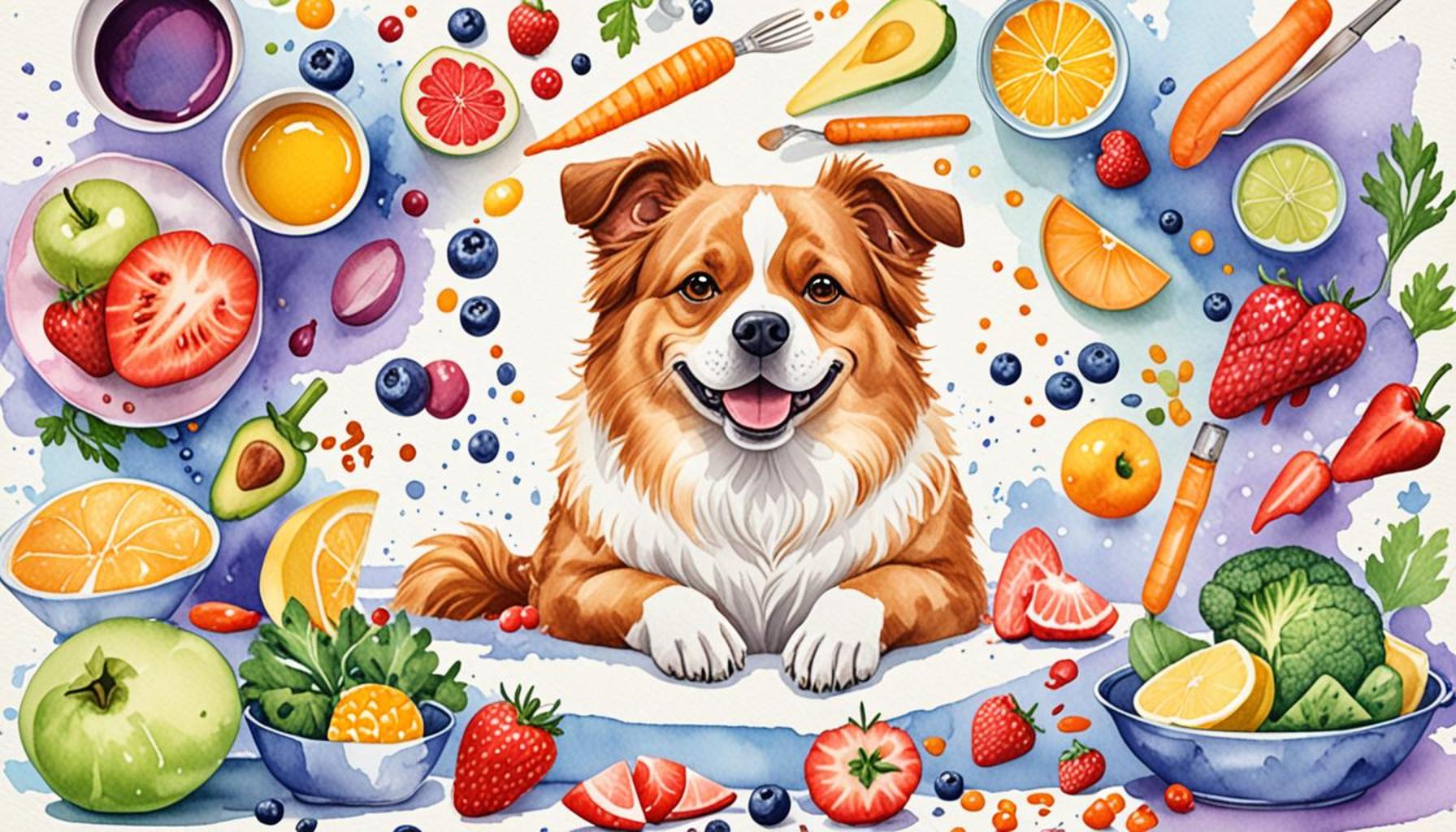The Importance of a Balanced Diet for Pet Health

Understanding Pet Nutrition
In today’s fast-paced world, ensuring our pets receive a balanced diet is more crucial than ever. Just like humans, pets require a variety of nutrients to thrive. A well-planned diet helps maintain their energy levels, supports their immune systems, and promotes overall well-being. Without adequate nutrition, pets can suffer from a range of health issues, such as obesity, diabetes, and even more severe conditions that directly impact their quality of life.
What is a Balanced Diet?
A balanced diet for pets encompasses a strategic mix of proteins, carbohydrates, fats, vitamins, and minerals. Each of these components plays a vital role in ensuring pets are healthy and active:
- Proteins: Essential for building and repairing tissues, proteins form the foundation of your pet’s diet. Quality sources include meat, fish, eggs, and certain plant-based proteins. For instance, chicken, turkey, and fish are often recommended for dogs and cats alike.
- Carbohydrates: These are a crucial energy source and aid in digestion. Whole grains like brown rice and oats, as well as vegetables such as sweet potatoes, can contribute beneficial fiber and energy to your pet’s diet.
- Fats: While often misunderstood, fats provide essential fatty acids and serve as a concentrated energy source. Omega-3 and Omega-6 fatty acids are vital for skin and coat health, and can be found in fish oils and flaxseed.
- Vitamins and Minerals: These nutrients regulate various metabolic functions and are crucial for a healthy immune system. Ingredients like spinach and carrots are excellent sources of vitamins, while calcium and phosphorus are essential minerals commonly found in meat and bones.
The Risks of Imbalanced Nutrition
Feeding your pets an imbalanced diet can lead to serious health risks. Some prevalent issues include:
- Obesity: In today’s world, many pets suffer from obesity, often due to overfeeding and lack of exercise. This condition can lead to further health complications like joint problems and heart disease.
- Diabetes: Inadequate nutrient management, particularly excessive carbohydrates, can lead to diabetes in pets. This condition requires lifelong management and can severely impact quality of life.
- Digestive Disorders: Imbalanced diets can cause a range of digestive issues, from diarrhea to constipation. These disorders can be painful and may require veterinary intervention.
It is essential to consult with a veterinarian to ensure that your pet’s dietary needs are comprehensively met. Pets across different breeds, sizes, and age groups have varying nutritional requirements. Furthermore, pet food brands can differ significantly in quality, so understanding pet nutrition in depth can guide owners in making informed decisions that positively affect their pets’ health. By investing time in learning about your pet’s nutritional needs, you pave the way not only for a happier and healthier pet but also for a more fulfilling companionship.
LEARN MORE: Click here for insights on managing aggressive pets

Essentials of Pet Nutrition
A balanced diet stands as a cornerstone of good health for pets, and understanding the essentials can empower pet owners to provide their furry companions with the nutrition they need. Pet foods are often meticulously formulated to cater to different life stages, breeds, and health conditions. By arming themselves with knowledge about these dietary requirements, pet owners can make informed choices that best support their pets’ unique needs.
Recognizing Nutrients
To create a balanced diet, it is vital to acknowledge the key nutrients required for optimal pet health. Each nutrient plays a specific role that contributes to the overall well-being of pets.
- Amino Acids: Proteins break down into amino acids, which are essential for various physiological functions such as tissue repair and immune response. Certain amino acids, like taurine, are particularly crucial for cats as they cannot synthesize enough on their own. Insufficient levels of taurine can lead to severe health issues, such as cardiomyopathy, emphasizing the need for high-quality protein sources in cat food.
- Digestible Fiber: Including fiber in a pet’s diet supports healthy digestion and can be instrumental in weight management. Ingredients such as pumpkin and peas not only provide fiber but also add valuable vitamins and antioxidants that help improve overall health. For instance, soluble fibers can help regulate blood sugar levels, making them beneficial for pets with diabetes.
- Water: Often overlooked, water is a vital component of any diet. Ensuring pets have constant access to fresh water helps prevent dehydration, which can lead to urinary problems and kidney disease. It’s best to provide clean water daily, and some pets may even enjoy water fountains that keep it flowing and fresh.
- Types of Fats: Not all fats are created equal. Healthy sources of fat, such as fish oils rich in Omega-3 fatty acids, can help maintain a shiny coat and contribute to heart health. Fats are also an essential energy source, and incorporating the right type of fats into a pet’s diet can influence their vitality and mood.
Why Quality Matters
When selecting food, pet owners should prioritize quality over quantity. The market is flooded with various commercial pet foods, but not all are created equal. A good practice is to read labels meticulously for quality ingredients. Aiming for products that list whole proteins as the primary ingredient and avoiding fillers like corn, soy, and artificial additives can go a long way. This approach ensures that pets are receiving a nutritionally complete diet.
Consulting with a veterinarian can provide personalized recommendations tailored to your pet’s specific needs. As pets age, their nutritional requirements may shift dramatically, necessitating adjustments to their diet. Factors such as activity level, health conditions, and even seasonal changes can sway nutritional needs, making ongoing evaluations all the more critical.
The importance of a balanced diet cannot be overstated. A well-nourished pet often exhibits increased energy, maintains a healthy weight, and showcases a glossy coat, all clear indicators of good health. Furthermore, proper nutrition plays a vital role in enhancing longevity, allowing pets to enjoy fuller and richer lives by mitigating the risk of chronic health issues. Pet owners hold a pivotal role in cultivating these healthy foundations, ensuring their furry friends lead vibrant and active lives filled with joy. Hence, investing time in understanding and optimizing pet nutrition is a rewarding endeavor that benefits both pets and their owners alike.
The Role of Nutrients in Pet Health
A balanced diet is essential for maintaining optimal health in pets. Proteins, fats, carbohydrates, vitamins, and minerals are the building blocks of a healthy diet. Each nutrient plays a crucial role in your pet’s overall well-being. For instance, proteins are vital for tissue repair and muscle development, while fats provide concentrated energy and support skin and coat health.
Understanding Nutritional Needs
Different pets have different dietary needs based on their age, breed, size, and activity level. Puppies and kittens require more protein and calories than adult pets, reflecting their growth and energy requirements. Similarly, senior pets may need diets lower in calories yet enriched with certain nutrients to support joint and brain health. Understanding these unique needs ensures that you are catering to your pet’s individual health requirements.
Benefits of a Balanced Diet
A balanced diet contributes significantly to the prevention of common health problems in pets. Obesity, diabetes, and dental issues can often be mitigated through proper nutrition. With a nutrient-rich diet, pets tend to exhibit higher energy levels, better digestion, and improved mood. Regular visits to the veterinarian can also help in tailoring the diet to ensure all nutritional needs are met, fostering a long, happy, and healthy life for your beloved companion.
Avoiding Common Dietary Pitfalls
Emphasizing the quality of pet food is crucial. Not all commercial pet food is created equal, and many contain fillers and artificial additives that may do more harm than good. Reading labels and opting for premium brands that focus on natural ingredients can enhance your pet’s health significantly. Scrutinizing ingredient lists and understanding what goes into your pet’s food can help prevent allergies and digestive disorders.
Building Healthy Habits
Establishing regular feeding routines contributes to better digestion and helps regulate your pet’s metabolism. Monitor portion sizes and be mindful of the treats you offer, as many high-calorie treats can disrupt a balanced diet. By incorporating healthy snacks such as vegetables or fruits like blueberries and carrots, you can further enhance your pet’s diet while keeping them excited about their food.To delve deeper into how to create the perfect diet plan for your pet, refer to your veterinarian, who can provide personalized guidance to suit your pet’s specific health needs and lifestyle.
DISCOVER MORE: Click here to learn about the power of nonverbal cues in pet training
The Risks of Nutritional Deficiencies
While a balanced diet is fundamental to enhancing pet health, the repercussions of nutritional deficiencies can be dire. Pets consuming an inadequate diet may exhibit various health issues, which in some cases can become irreversible if not addressed promptly.
Common Nutritional Deficiencies
One of the most prevalent deficiencies in pet diets is the lack of essential fatty acids. Pets, especially dogs, require Omega-6 and Omega-3 fatty acids to support their skin health and to combat inflammation. A deficiency may lead to dry skin, excessive shedding, and even skin infections. Incorporating fish, flaxseed, or canola oil can significantly help enhance fur quality and overall coat health.
Moreover, a deficiency in vitamins and minerals can drastically affect a pet’s immune system. Vitamins A, D, E, and K are vital for maintaining healthy bodily functions, including vision, bone strength, and blood clotting. For example, a lack of Vitamin D can lead to poor calcium absorption, resulting in weakened bones and muscle weakness. It is critical to ensure that commercial pet foods contain these vital nutrients, particularly for growing puppies and kittens whose developmental needs are more rigorous.
Contribution to Chronic Health Conditions
A poor diet can lead to the onset of chronic health conditions in pets, one of the most concerning being obesity. Current data from the Association for Pet Obesity Prevention indicates that over 50% of dogs and cats in the United States are considered overweight or obese. This alarming statistic underscores the importance of not only providing a balanced diet but also portion control and proper feeding practices. High-caloric diets, combined with sedentary lifestyles, contribute to a slew of health complications ranging from diabetes to heart disease.
Another significant health issue stemming from inadequate diets is dental disease. Pets that consume consistently poor-quality food often face dental decay and periodontal disease, which can create pain and lead to infections. Including dental-friendly treats and ensuring dietary fiber aids in the natural cleaning of teeth can help mitigate these risks.
The Role of Snacks and Treats
It’s important to remember that the snacks and treats provided to pets also contribute to their overall diet. Many commercial treats are high in fillers and sugars that can detract from the quality of a balanced diet. Pet owners should choose snacks that complement their pet’s nutritional requirements. Options such as freeze-dried meats, fruits like blueberries, or homemade recipes can offer healthier alternatives that support a balanced diet.
Additionally, being wary of portion sizes is crucial. Treats should make up no more than 10% of an animal’s daily caloric intake. This guideline prevents excessive weight gain while allowing for positive reinforcement training with healthier snacks.
It is evident that the role of a balanced diet extends far beyond satisfying hunger; it directly impacts the longevity, vitality, and quality of life for pets. By understanding the nuances of pet nutrition and taking proactive measures to provide balanced meals, pet owners can ensure their furry friends lead happy and healthy lives.
DIVE DEEPER: Click here to discover more
Conclusion
In the realm of pet care, the significance of a balanced diet cannot be overstated. As pet owners, understanding the critical link between nutrition and overall health empowers us to make informed choices that can lead to healthier, happier lives for our furry companions. A well-rounded diet rich in essential nutrients not only fuels their daily activities but also fortifies their immune systems, promotes healthy skin and coat, and prevents chronic health issues such as obesity and dental disease.
Moreover, nutritional awareness allows us to be proactive rather than reactive regarding our pets’ health. With over 50% of pets in the United States classified as overweight, there is an urgent need to reassess feeding practices and dietary choices. By prioritizing quality over convenience and opting for nutrient-dense options, we can mitigate the risk of long-term health complications.
Additionally, it’s crucial to recognize that treats and snacks are integral to a pet’s diet and should be selected with care. High-quality, wholesome snacks not only support nutritional needs but also enhance the bond between pet and owner through positive reinforcement. By ensuring our pets receive a balanced diet that truly meets their physiological requirements, we lay the foundations for a vibrant life.
Ultimately, investing in nutritional education and engaging with veterinary professionals can pave the way to a lasting, fulfilling companionship with our pets. Let us commit to enriching their lives through balanced diets, vigilant care, and a genuine understanding of their dietary needs.



